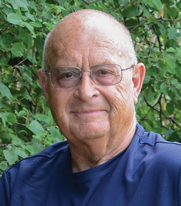The much-heralded potential of sustainable aviation fuel (SAF) as a hot market for agricultural products began in earnest in mid-November as Naples Aviation accepted the first delivery of the renewable jet fuel destined for eastern U.S. markets. The size of the delivery was not disclosed.
The sale is part of an agreement between Avfuel Corp. and Valero Marketing Supply Co., and Darling Ingredients Inc., using waste-based feedstocks refined by Daimond Green Diesel (a Valero subsidiary) in Port Arthur, Texas. There, Valero has converted 50% of its refinery’s annual 470-million-gallon capacity to SAF. The facility is expected to be one of the largest SAF refiners in the world.
Feedstocks for SAF range from used cooking oil and animal tallow to distiller’s corn oil and ethanol, providing a wide-range of opportunity for various agriculture raw-material markets. SAF provides an estimated 80% reduction in greenhouse gas emissions over the lifecycle of its production to eventual consumption by aircraft.
“The milestone proves we can transform waste into renewable energy at an unprecedented scale,” explains Randall Stuewe, Darling’s CEO.
Diamond Green Diesel owns 2 renewable diesel refineries in the Houston area with a production capacity of 1.2 billion gallons per year. Manufacturing process for renewable diesel and SAF are very similar and properly configured refineries can readily produce both products in quantities dictated by market conditions.
The following figures outline the magnitude of potential demand for SAF as regulators continue to seek ways to decarbonize the use of aviation fuel. Under current U.S. regulations, SAF can be blended up to a 50/50 mix with conventional petroleum-based Jet-A fuel. U.S.-only jet fuel consumption is estimated to be 26 billion (with a B) gallons per year, and in 2022 the country produced only 16 million (with an M) gallons of SAF.
Depending upon a plethora of regulations and policy decisions on environmental and agricultural concerns, U.S. producers of food and fiber and animal products could be sharing in the SAF boom that’s coming. Much of that potential, however, lies in decisions made in Washington, D.C., on renewable fuel standards, and what Congress may include in a new Farm Bill.






